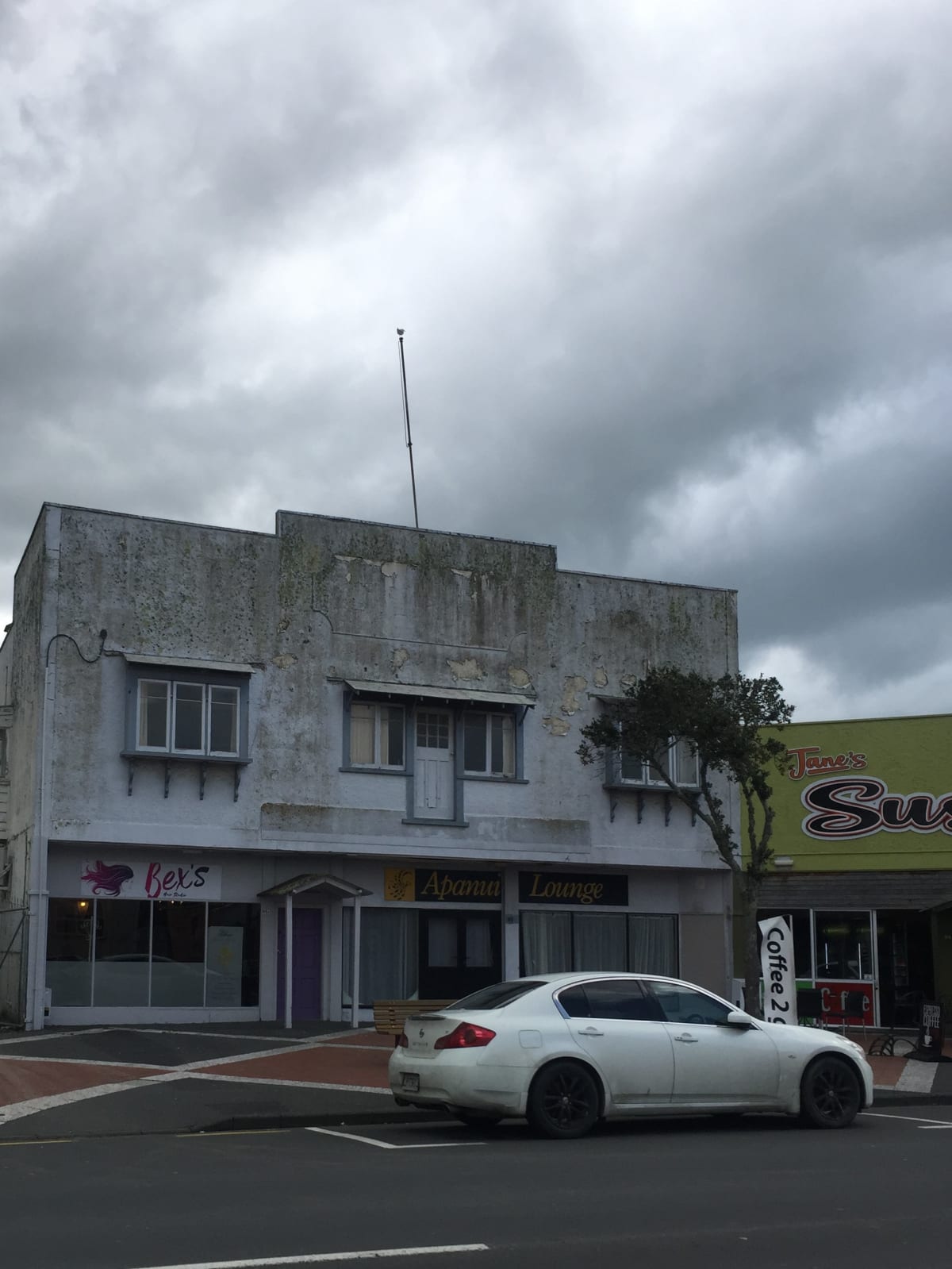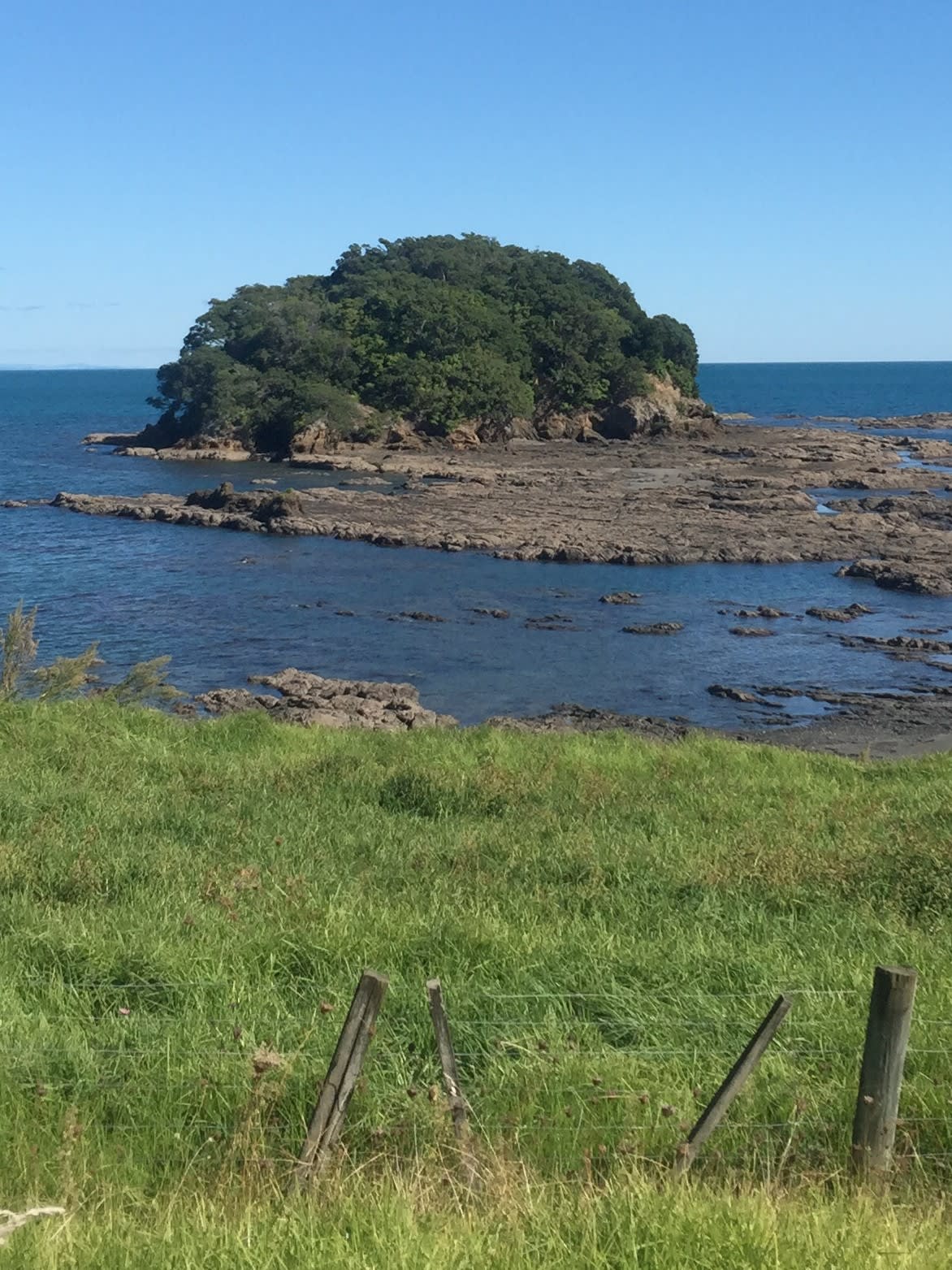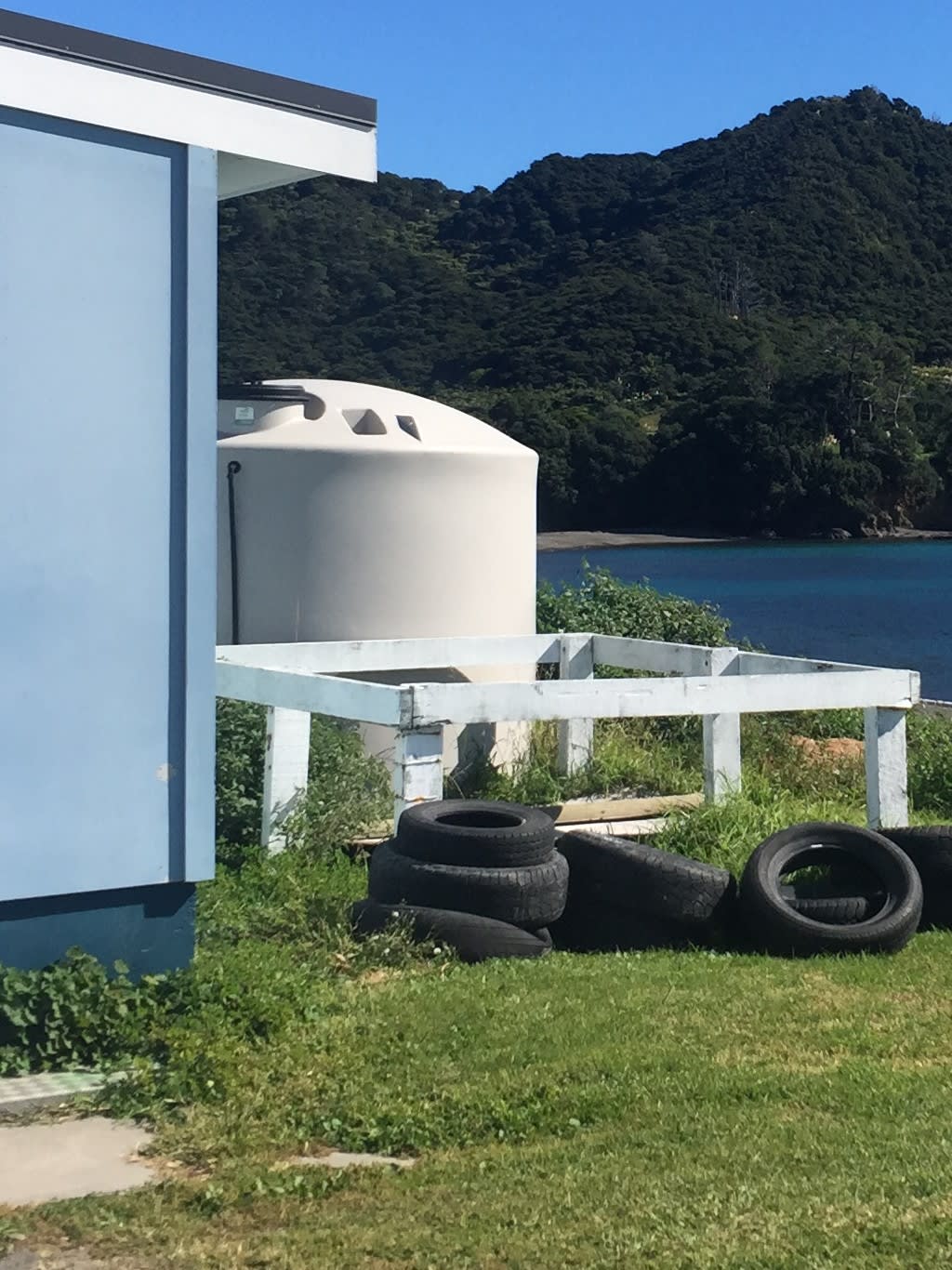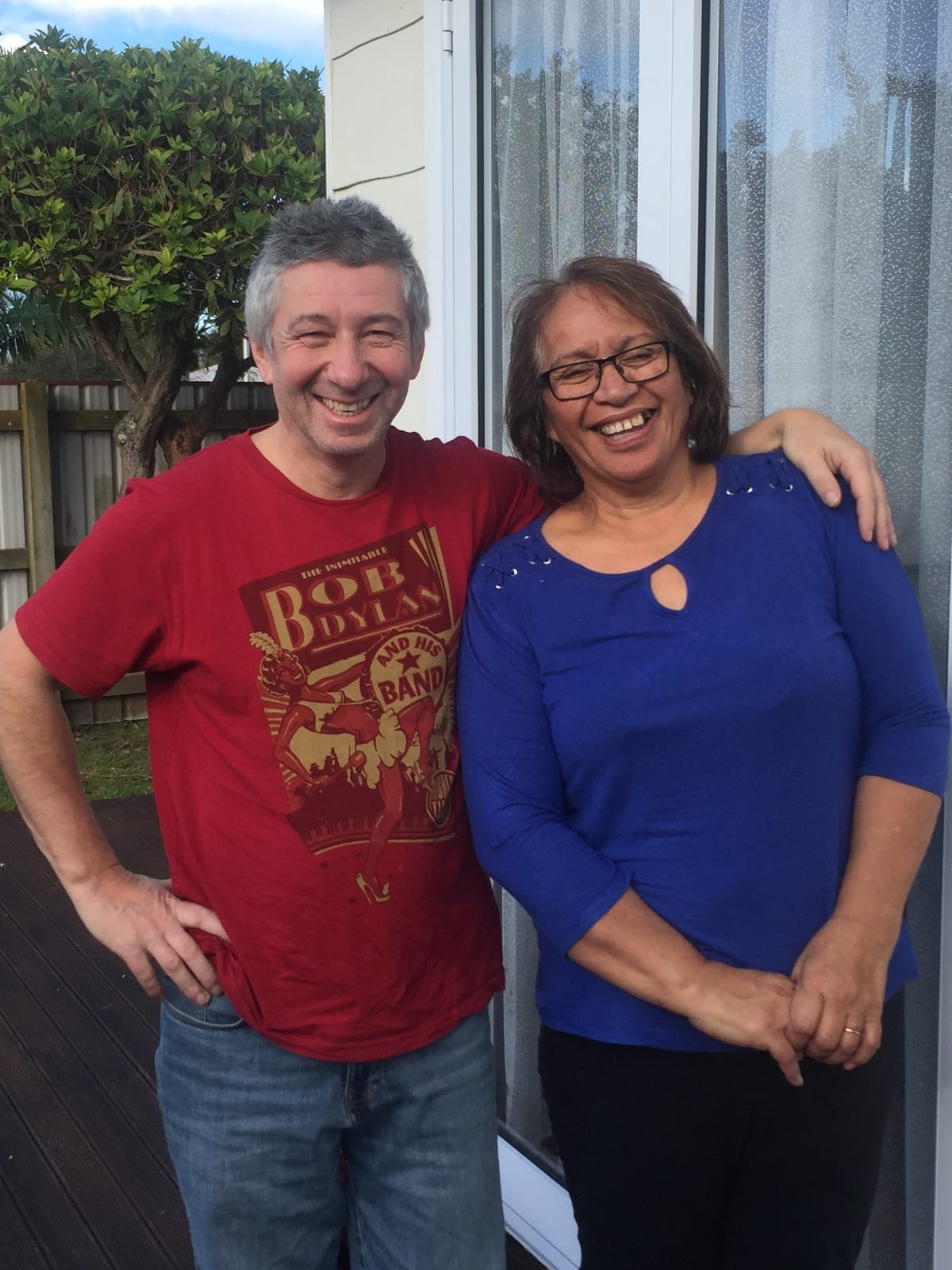Hard labour in paradise
ReadingRoom
An essay by Catarina de Peters Leitão about the migrant fruit pickers who work every summer at Ōpōtiki
Every summer Ōpōtiki simmers with opportunity like a pan of boiling water. Every year New Zealand’s kiwifruit growers produce around 149 million trays for export, and the Bay of Plenty is responsible for 80% of the crop. Three kiwifruit packing houses in town open up for the season.
Ōpōtiki is my home town, in a way. But there was a time when I couldn’t call it that: I moved with my family here when I was 15. Before that we lived in Lisbon. So it’s complicated for me to answer the question of where I really come from; it depends on what year you’re asking me about. My father is Portuguese; my mother is Te Whānau-ā-Apanui, from Te Kaha further along the coast on the East Cape. I couldn’t think of two stronger opposites.
For a long time after we arrived, I didn’t like it. In Lisbon I received consistently high marks for English, but here in brown-as Ōpōtiki my English sounded strict and formal, which didn’t help me fit in. I’d led a sheltered life in Portugal with almost no relatives, and attended a private school in a refurbished palace. Here I attended decile-one Ōpōtiki College and had loads of cuzzies. Rutaia was my bad-ass cousin whom many felt intimidated by. Everyone knew he was trouble and that connection made me untouchable at school. But nothing that happened in those days could make me love Ōpōtiki. When I left three years later to study film at Unitec in Auckland, I vowed I would never return.
In 2018 I’m back in Ōpōtiki – from Wellington, where I work in a call centre – for a summer holiday. It’s Mum’s first season working in the kiwifruit packing house. I warn her against it because I’ve heard it’s hard work and the pay isn’t good. Mum has done many jobs in her life, from working for my father’s security company in Portugal to admin, catering and teaching. The year has been a hard one for her, her only income from relief teaching a few days a week. My father’s retired, but he’s signed up for a second season at the packing house. Mum is adamant — the money will pay to refurbish the kitchen. “I can handle it,” she tells me.
Town is bustling with new people wherever we go: at the supermarket, on the main drag, at Ju Bailey’s and the Masonic Hotel. People have travelled from around the country and overseas for the kiwifruit season: young European backpackers, Indian families, Tongans and Sāmoans. Kiwifruit season transforms the lives of locals too. Whatever your financial situation, you have the ability to make things better for the next few months at least. Couples worry less about bills, stay-at-home mothers break away from the monotonous rhythm of domestic life and high-schoolers work to put aside money for makeup, RTDs and beer. If it’s good enough for others, it’s good for Mum too.
There are several kiwifruit towns in the Bay of Plenty: Te Puke, Tauranga and Katikati are the best known. Mum’s packing house, on the edge of town in Ōpōtiki, attracts those who are not considered for better jobs elsewhere. Two thirds of them belong to racial minorities. A small number of young families who struggle in the cities drift to little Ōpōtiki too.

Mum works the unpopular night shift, on duty between 5.45pm and 4.15am.
“You should have taken the day shifts!” my father complains. “Too hard! Too much work they do!” My mother just tucks her hair into her bulbous factory white cap and says nothing. The choice of shift is so typically her. Mum takes the harder option and there is nothing anyone can do or say about it. She wants her shiny kitchen.
The only thing my father can cook is toast, so every evening I make dinner for us. I’m going through an Arab-Jewish phase, trying out recipes from Ottolenghi’s Jerusalem cookbook. My father tries everything, from brown lentils and deep-fried onions in our mejadra to sumac sprinkles and yogurt on broad-bean dip. Even the couscous and stuffed eggplants, though he doesn’t usually eat vegetables. When I go back to Wellington, Mum will leave food for his dinner.
Her knees and feet are sore by the time she sneaks into bed, not long before birds start singing in the dawn-blue garden.
*
In town it’s widely thought that packing workers are mostly Māori, but not many work on the night shift. I’m surprised when Mum tells me this. We were both dead convinced only Māori would bother doing this work. In the evenings, 80-90 packers work at Mum’s packing house: about 10 are Māori, 10 are Pākehā and the rest are Sāmoans, Tongans, Indians and young foreigners. Plenty are backpackers who will move on to the South Island after the season. It lasts only six months and the Sāmoan and Tongan packers are the ones who are the most eager to go home.
I’m curious and always ask Mum about work in the packhouse. She explains her job to me: she selects grade A fruit from six-metre refrigerated containers, to be boxed for overseas orders. Grade B goes to national supermarkets and local food distributors: New Zealanders do not get the best golden kiwifruit. On his shift, my father packs some of the special orders that go to China. My father is almost 80, but no one would guess that — he looks much younger.
Mum’s best friend at work is Grant, who she describes as a Pom. He and his wife have lived on Auckland’s North Shore for four years. Grant had no profession when he moved to New Zealand and can only find work in hospitality via an agency. In Auckland he earns $200–300 a week, which is like shifting wind to your bank account and expecting things to be fine.
Grant saw an ad about the kiwifruit season and decided to come down alone. He sleeps in his car by the Mōtū Trails and rents a shower and bathroom nearby for $60 a week. He could rent a bed as well for $100 a week, but instead he saves the rest to send back to his family.
“You think brown ones have problems, but white ones have them too,” Mum tells me as we drive around town in the black truck. She keeps sharing her work stories with me. At the packing house during their mealtime in the staff cafeteria, Mum and Grant gossip talk about his bisexuality.
“In the past I used to be only with men, would you know?”
“For fuck’s sake, Grant,” she blurts out, spitting rice. “You’re gonna put me off my kai.”
“And then I took a turn, I got married. I had three children.”
“For fuck’s sake, did you stop being gay?”
“No, I still liked men. I used to be gay all the time! Then I met this girl, a New Zealand girl. We got together and decided to have a baby.”
“Fuck, you’re weird.” They share her fruit salad and half-sleeve of Krispie’s biscuits for dessert. Mum’s baffled by Grant’s apparent nonchalance about his sexuality.
*
Mum says working in the packing house is slavery. “Not just the Coconuts,” she says, “but white slavery and the rest of us. We are all slaves.” The Tongan and Sāmoan governments have contracts with the New Zealand government to bring workers in seasonally, and the kiwifruit workers think the Tongan packers have it worst of all. Mum’s Tongan friends have a contract with their government — their king and the royal family. They are hedged by restrictions: the furthest they are allowed to travel is Whakatāne, an hour’s drive away at most, and even on their days off they need permission to go.

The Tongan packers come with minders, too, employed by the Tongan government to watch them. The Tongans are not allowed to form new relationships or have sex with anyone: the minders will know or be informed by others. The minders are part of the workforce that travels from Tonga for the kiwifruit season. Mum tells me there are workers among them who are snitches, hired by the employer. The pack-house employers also keep the Tongan workers under the thumb with draconian contract clauses. Mum says the other workers sometimes gossip about the conditions under which the Tongan packers come here. They know the packing house flies them over to New Zealand and makes them pay back the fare, but no one is allowed to talk about how much it costs. Mum thinks it’s likely that the packing house is screwing them with the airfare. None of the workers will ever know because the Tongan packers, even if they are Mum’s friends, are not allowed to discuss it.
The packing house provides accommodation too, with four roommates to one bedroom. Two double bunks where there used to be one, a lean pillow on each mattress. An acquaintance of Mum’s, who used to run the administration at the packing house, confirmed that only two people are supposed to sleep in each room. The four-to-one bedrooms are a recent addition for which the workers are charged $117 each per week. Mum’s disgusted by this. She says they have to share the bunks, and some barely fit on the mattress. The springs creak whenever they turn over in the metal bunk beds.
On a break, a young Tongan woman called Ana complains to Mum about their room.
“It’s very small. Got no space. I sleep with Emeni, Huelo and my sister. Emeni snores all the time.”
“Why don’t you tell her to turn over?”
“It doesn’t matter. If Emeni’s on her back or her side, she snores. Emeni should be in room of her own.”
“Why don’t you ask them about putting some of you on split shifts? Say, two on days and two on nights. At least then you get a bit of space in the room.”
“No, they won’t let us.”
The employers pile Tongan workers from the same shift into the same room, so the women Mum knows are always together. One might think this promotes sisterhood, Traveling Pants-style, but Ana doesn’t think so. She really can’t sleep.
Mum brings Ana apples and oranges from home to console her.
“You’re my best fend, Ra! I tell everyone you’re my fend.”
Mum knows she’s Ana’s best friend because she brings her kai. Since we were little, my sisters and I were taught by Mum to take an offering with us whenever we were invited somewhere. In 2006 when I was back in Lisbon I showed up at my ex-boyfriend Paulo’s apartment in Coimbra, breathless, a purple net of brown onions in hand. I’d spent the last of my money on a train ticket to see him, and the onions were all I’d managed to grab from my sister Tina’s pantry. Paulo wasn’t just any boyfriend: he looked like the director Xavier Dolan, with dark features and a gentle but noticeable belly. When I moved to New Zealand he used to call me every night, but after I’d been in Ōpōtiki a couple of months, Paulo and I decided to cut all contact for our own good. We missed each other too much, and despite all our efforts at communicating the situation was unsustainable. Later he had started dating a girl from his rural home town with hair like Zooey Deschanel, who’d always tried to impress him at the disco.
During that 2006 visit to Portugal, Paulo emailed me just before I was about to leave for home. He had heard I was in Lisbon and asked if he could call me. I didn’t reply. Instead I packed red lipstick, electric-blue tights and a small bottle of perfume, grabbed the bag of onions and set out. Four hours after I received his email, I called him from the Coimbra train station. He came to meet me and we walked up the cobbled street to his home. There I could smell the sweetness of vanilla in the air, the scent of another girl. Carrying my onions because of that little voice of my mother’s that I could hear: Always bring something with you, no matter where you go.
*
On one occasion, Mum brings a box of fruit for Ana to share with everyone. Ana thanks her.
“Nahu, Emeni, Huelo say you’re they fend! When you going to Auckland, Ra? Can you buy me a hoodie? A 2XL hoodie.” Mum plans to get her a $9 one from Kmart. She thinks Ana probably means a polar fleece one but doesn’t know how else to describe it. She asks her cousins and acquaintances from old jobs in Ōpōtiki, “Do you fellas have any nice warm jackets you don’t want anymore? Give them to me to wash, and I’ll give them to the Cocos.”
Ana has a wide frame, golden skin and scarlet lips. They call her Big Tip. She’s a young mother of two; her wee ones — four and six years old — are back in Tonga. She’ll be away from them for the whole season. Mum learns that the Tongan packers who are good and play the game properly may return for future seasons. A handful of them come year after year.
*
Back at the call centre in Wellington, I ring strangers in Australia and ask them to donate to various charities – for epilepsy, families of kids with cancer, a police youth club. Lots of my co-workers are let go because they don’t reach their targets. Many quit after a few days or a few weeks. If anyone lasts a year, they’ll be there forever.
I talk to Mum on FaceTime. She tells me the packing house has had a big meeting with the Tongan workers. No one else knows what’s happening and they’re dying to find out. The Tongans packers are tight-lipped — even Mum’s friends — and won’t say why it took place. Grant and Mum try to spot whether anyone is missing in the evening shift group. See who shagged who out of the group. They can’t figure out what’s happened. Perhaps the Tongan packers are frightened that if they step out of line, they will get sent back to the Islands.

Work slows down for a fortnight and the packers only work three or four days a week. As a result the Tongans are not earning much money to send back to their families, and they’re hungry. Groups of Tongan packers sit near Mum and Grant’s table, looking at their food while they’re eating. When Mum takes out an apple, Ana asks for a bite.
Ana’s request makes Mum feel whakamā. She thinks about the strength it must have taken to ask. Though Ana’s sisterhood say nothing, they’re all staring at Grant’s kai. After this Mum starts packing larger portions in her bag.
Mum tells me that those Tongan packers who do have food eat two-minute noodles. Mum hates seeing the noodles in the cafeteria. Why not make a pot of something more nutritious together, instead? Sometimes she and Grant finish their shift before the meal break, and everyone gets sent home. If Ana is fast enough to catch Mum, she asks her, “Ra, you want to have something at home, eh?”
“You want my dinner?” Mum offers. It’s un-Islander of her Tongan friend to ask her so bluntly for the food. Ana, though, is a smarty pants and a bit of a hustler. Mum likes that about her. None of the other Tongan packers would ask, but somehow Mum attracts smart-arses wherever she goes.
“Share it,” Mum tells her. “Make sure you share it with the others then, Ana.”
“The ladies say they love your vegetables.”
Besides Mum’s leftovers, her Tongan friends and the others also eat canned mackerel in oil with boiled pumpkin and rice. Grant eats the canned mackerel too; he tells Mum that it’s the cheapest thing, $2 a can. Grant mixes the oily goo with curry and rice. Once or twice a week Mum brings enough kai for them both.
On his last night at work Grant tells Mum that all he has to eat is a cold omelette with mayonnaise. As usual, Mum’s packed too much food and offers him some of her fettucine.
The four friends in the Tongan Sisterhood of the Traveling Pants brought frozen fish from the Islands, but they were limited in the amount they could bring. Within the first fortnight they ran out.
“Costs a lot of money to eat fish here. We can’t eat fish here! Only fish in a can.”
“Don’t worry,” Mum tells them. “A lot of New Zealanders can’t afford to eat it either. Māori are like you fellas, only eat noodles.” Mum offers her big freezer to her Tongan friends, if any of them come back next year. They’ll be able to store more of their fish. Hopefully next time it will last them for a couple of months.
My parents eat pan-fried tarakihi almost every day. They scrimp on other essentials to have this pleasure. This town — along with many others along the East Cape — is known for its abundance of fresh seafood all year round: mussels, kina, raw fish, snapper, cod, you name it. The locals here are loud and proud of it. I always look forward to coming back home and eating that fish. It doesn’t taste as fresh anywhere else. And I look forward to pulling the bread apart with my hands at Mum’s table, eating roasted rīwai, grease stains of pleasure on the table cloth at the end of the meal.
*
After I did my film degree, I had a stint as a freelance camera operator. When I returned to Ōpōtiki for the holidays, my mother offered to teach me how to drive. One evening I was practicing night-driving home from Ōhope, my mother in the passenger’s seat. Just before we entered town and got that beautiful glimpse of the beach, my mother thought I was veering into the other lane. She grabbed the wheel to correct my steering and told me to slow down: I pressed the accelerator by mistake and the car spun out of control. We ended up in a ditch. I fractured my spine and spent three weeks in various hospitals, and after that I stayed at home with my parents in Ōpōtiki, trying to figure out what to do next. Most of my recovery time was spent cooking.
On my return to Auckland I studied to become a pastry chef. For almost three years at the Langham Hotel I made cakes for high tea and the restaurant. The hours were long and odd: I started work at 4am and finished at 2pm. I would be walking to work while other people were still out at clubs on K Road. Though I don’t do this work anymore, I still bake for my parents – Portuguese custard tarts, and farófias, poached meringues that look like clouds of egg white with a custard sauce. My father said his mother used to make these for him.
The last time I saw Paulo, he fried the onions I brought with chopped garlic, tuna and passata. He poured some wine in the pan and boiled the spaghetti. The remaining red wine he divided between two mugs so we could share it.
*
At the call centre we have a half-hour break for lunch between four-hour shifts. People sit in the staff kitchen eating lunch from Tupperware containers, or two-minute pot noodles. Many of us say we’re saving up for a trip, but no one ever takes leave. No one ever goes anywhere.
My mother tells me that the newer packing line is used by the daytime workers and the older, shorter one in the evening shift. A deafening mix of 90s covers chosen by one of the Sāmoan packers blares from two big speakers, so loud the workers can barely hear each other speak. The Tongan and Sāmoan packers love to sing along to the old tunes. During the odd slower song, some get teary-eyed thinking of home.
Mum tries to chat to Emeni the Snorer while they are packing together on the line. Fold that box, careful to not get cut by the sharp corners and on to the next one! Ten seconds is all they have between packing this box and the next. Mum asks Emeni why she doesn’t go fishing on her days off. The beach is close by.
“We are not allowed to go fishing. In Tonga, ladies stay home. Ladies wash the clothes.”
“But you’re in New Zealand! Can’t you do that if you’re not home?”
“No, Ra. Still Tongan lady.”
Mum asks Ana too. Maybe she will dare to go fishing — she’s the youngest, after all. But Ana gives a similar reply. Her Tongan friends know they have to carry that aspect of Tongan culture wherever they go. All they can do is keep on working, keep going. Hide away in their difference.

At their packhouse, the end of the season is celebrated with a huge barbecue for the staff. At least, that’s what Mum was told. On the six-metre-long packing lines where Mum and the others usually work they have placed rotisserie-cooked chickens, meat patties, sausages, curried egg salad, potato salad and coleslaw — all bought from the local supermarket.
“Pai kare!” she complains to Grant. “They didn’t even cook anything. Except for the fucking patties! Can you believe this?”
All the Tongan and Sāmoan packers, Indian families and backpackers are there. The Tongan Sisterhood of the Traveling Pants are dressed to the nines. The women all wear the same shade of lipstick, a brighter red than usual, and new pants in a slimming fit. Emeni wears a bright yellow hoodie. They tell her that Ana fell ill and has gone home.
Mum is glad to hear that. Things went sour between her and Ana in the last few weeks. Ana had told Mum how much she and the girls missed eating taro, their favourite food from back home. You couldn’t buy it on the coast. Mum happened to remember this when she was on a visit to Auckland. She bought six kilos of taro from the Avondale markets, and they weren’t cheap.
On her next shift back Mum gave Ana the big box of taro and told her to share it with the women in her room. In the following weeks Mum saw her eating the taro in the cafeteria, but only with her friend Huelo. That wasn’t fair — Mum had bought it for all of them. Ana never wore the hoodie Mum got her either.
*
For that final meal there’s fruit trifle made by the bosses: too-soggy sponge with fruit from cans and a custard that’s runny like soup. The most hideous dessert is a pineapple and mango cheesecake: loose biscuit crumbs topped with canned pineapples and whipped cream folded into fresh mangos. It’s the most bizarre thing Mum has eaten, even in all her years of helping in the marae kitchen.
An older Tongan man in loose khaki shorts, white socks and jandals sits on a wooden crate by the soggy trifles, playing the ukulele. Grant tells Mum that he’s not going back to his wife. “I feel like being just gay again,” he says, “for a while.” They hug and say goodbye.
Mum decides to skip her shift. Stuff it. She zips back home in the car to my father and a night in a real bed. A new school has offered her more stable work, so she’ll be earning regular money.
I ask her if she’d work as a packer again and Mum says she would. The money from this season has gone on fixing up the bathroom. She still wants a new kitchen.
Catarina’s essay is taken from the exceptional new anthology of New Zealand writing, Ko Aotearoa Tātou: We are New Zealand edited by Michelle Elvy, Paula Morris and James Norcliffe (Otago University Press, $40), available in bookstores nationwide.



